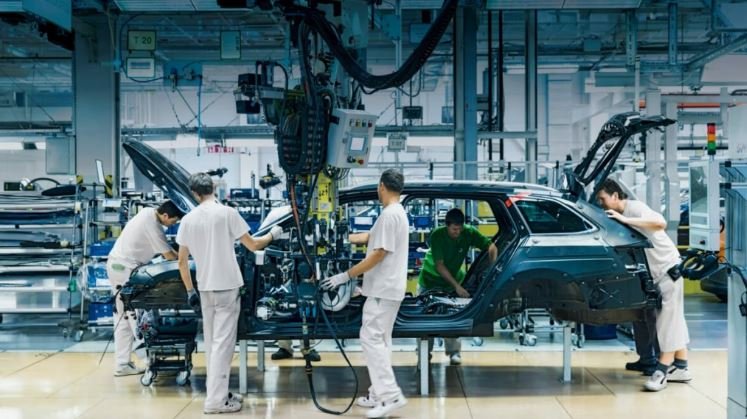Automation is rapidly transforming the car industry, creating a wave of innovation and efficiency. While machines have taken over repetitive tasks, human workers continue to play an essential role. This article explores the significance of human involvement amidst automation, focusing on their adaptability, creativity, and problem-solving capabilities. Additionally, we’ll incorporate the keyword “Townsville cars for cash” naturally across the content.
The Rise of Automation in the Car Industry
Automation has revolutionized car manufacturing. Robots now handle tasks like welding, painting, and assembly with unmatched precision. Automation ensures consistency, reduces errors, and enhances production speed. Despite these benefits, the need for human oversight remains crucial.
For instance, human experts monitor automated systems, ensuring smooth operations. This blend of technology and human expertise keeps the industry balanced. Even as automation grows, human workers remain indispensable, whether in production or aftermarket services like Townsville scrap cars for cash, which rely on personalized customer interactions.
Human Workers and Their Critical Contributions
While machines excel at repetitive tasks, humans bring unique qualities to the table. Problem-solving, creativity, and decision-making are areas where humans shine. For instance, when automation systems encounter errors, human technicians troubleshoot and resolve issues.
Similarly, human creativity plays a pivotal role in car design and customization. These tasks require understanding consumer preferences and market trends, skills that machines lack. In areas such as vehicle recycling and resale, including services like Townsville cars for cash, human interaction builds trust and ensures customer satisfaction.
The Balance Between Technology and Human Effort
The automotive industry thrives on the synergy between technology and human effort. Machines handle large-scale production, while humans focus on quality control and innovation.
For example, workers inspect finished vehicles for defects and ensure compliance with safety standards. They also gather feedback from end-users, which machines cannot effectively do. Furthermore, services like Townsville cars for cash require negotiation and clear communication, both of which depend heavily on human skills.
Challenges Faced by Human Workers
Despite their importance, human workers face challenges in the automated car industry. Job displacement is a significant concern as machines take over routine tasks. Employees must upskill and adapt to remain relevant in this changing landscape.
Training programs are essential to equip workers with the knowledge required to operate advanced machinery. Moreover, roles in customer-facing domains like Townsville cars for cash emphasize the ongoing need for interpersonal skills, ensuring that humans remain a vital part of the industry.
Upskilling: Preparing Workers for the Future
To maintain their relevance, workers must embrace upskilling opportunities. Training in areas like robotics, AI, and data analysis equips them to work alongside machines effectively. Many car manufacturers now invest in training programs to bridge the skill gap.
This proactive approach benefits both employers and employees. For instance, a worker skilled in automation can oversee multiple robotic systems, enhancing productivity. Similarly, in sectors like Townsville cars for cash, expertise in digital tools and customer management enhances service quality.
The Human Touch in Customer Interaction
Automation might dominate manufacturing, but customer interaction is a different story. Buying or selling a car is an emotional experience for many customers. Human workers provide empathy and understanding, making the process smooth and satisfying.
Services like Townsville cars for cash depend on this human touch. Workers communicate with clients, assess vehicle conditions, and negotiate prices, ensuring both parties are satisfied. This level of personalization is something machines cannot replicate.
Innovation and Creativity: Human Strengths
The automotive industry thrives on innovation. Designing new models, integrating sustainable materials, and developing electric vehicles require creativity. While machines can analyze data, humans are the ones who conceptualize groundbreaking ideas.
For example, the shift towards eco-friendly vehicles involves significant human input, from understanding consumer demands to engineering solutions. In the used car market, services like Top car recyclers Townsville rely on human insight to assess market trends and tailor offerings.
The Role of Leadership and Decision-Making
Leadership in the car industry remains firmly in human hands. Machines lack the capacity for ethical decision-making, team management, and strategic planning. Human leaders guide companies through challenges, such as supply chain disruptions or market shifts.
In addition, leadership ensures smooth collaboration between automated systems and human workers. For instance, businesses like Townsville cars for cash need strategic leadership to optimize operations, ensuring efficiency without compromising customer relationships.
The Future of Human Workers in the Car Industry
The future of human workers lies in adaptability and lifelong learning. While automation will continue to grow, it will create new opportunities for skilled workers. Roles in AI development, system maintenance, and customer relations will expand.
Moreover, the human element will remain essential in areas requiring trust and personalization, such as Townsville cars for cash. By embracing change and focusing on their unique strengths, human workers will continue to thrive in an automated industry.
Conclusion: A Collaborative Future
Automation and human workers are not adversaries; they are collaborators. The car industry’s success depends on leveraging the strengths of both. While machines enhance efficiency, humans bring creativity, empathy, and adaptability to the table.
Services like Townsville cars for cash highlight the indispensable role of human workers in customer-focused areas. By embracing upskilling and innovation, human workers can secure their place in this dynamic industry. Together, humans and machines will drive the automotive sector toward a brighter future.











Leave a Reply